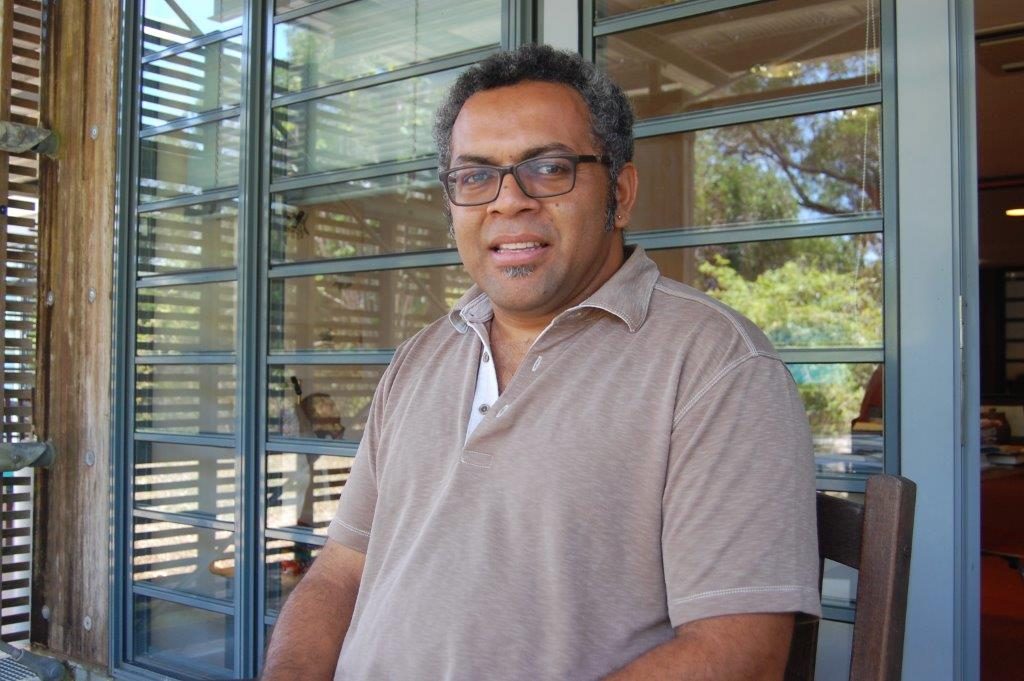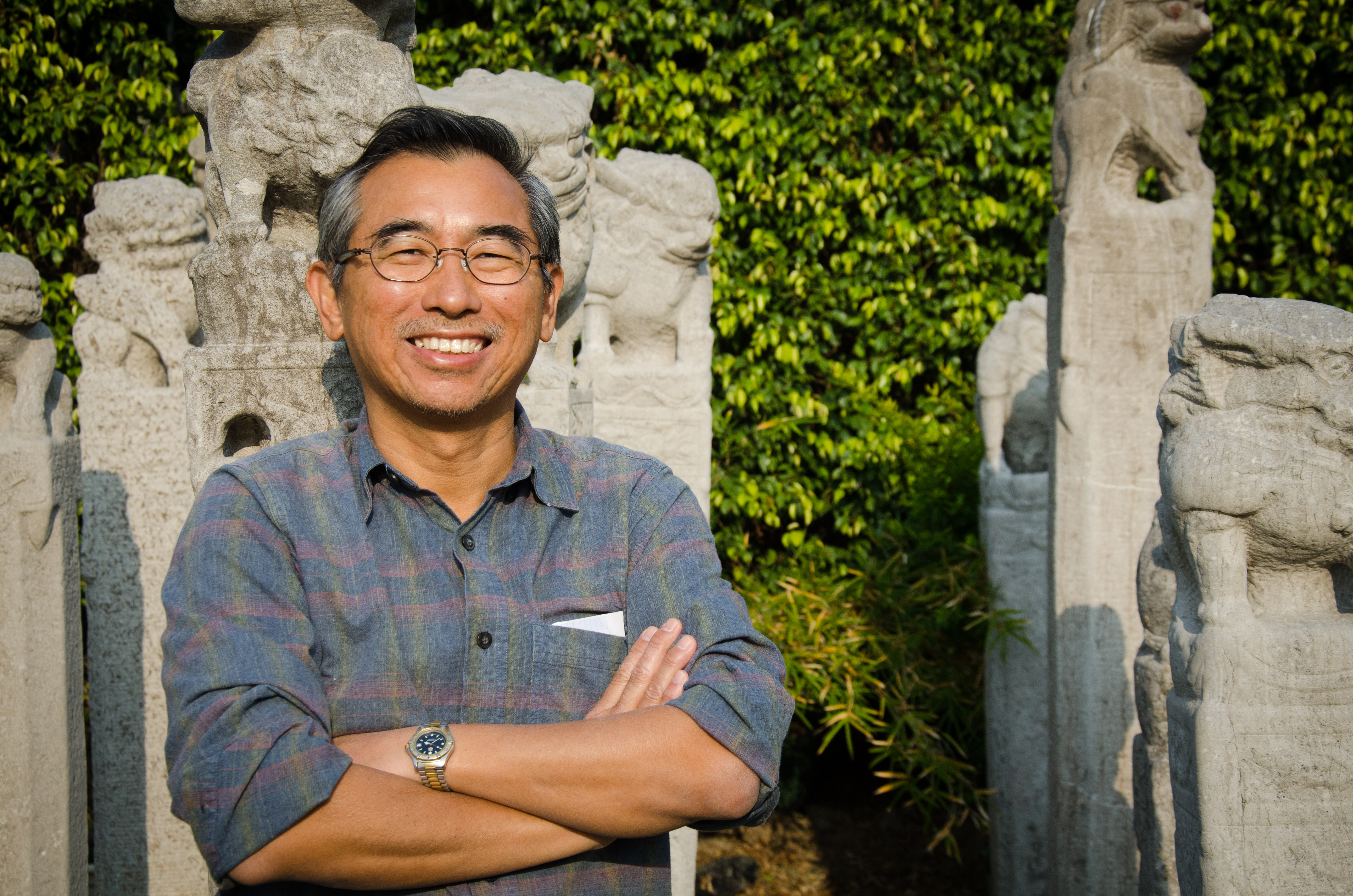-
About the Keynote Speakers
 © ADCK-CCT, photogr. G. del Rio
© ADCK-CCT, photogr. G. del RioEmmanuel Thuay Tjibaou (b.1976) in New Caledonia, is presently the Director of the Tjibaou Cultural Centre. His tribe is the Tiendanite of Hienghène in the north of New Caledonia. After commencing legal studies, he became a guide at the Museum of New Caledonia in 1998. He resumed his studies in 2000 obtaining the postgraduate degrees of Masters and Diplôme d’études appliquées (DEA) towards his Doctorate in Oceanic Languages. In 2005 he completed the second year towards his Doctorate at the National Institute of Oriental Languages and Civilizations; the subject of his thesis concerns the concept of ‹ parole › (Kanak orality). He was then called upon to become the Head of the Department of Cultural Heritage and Research at the Agency for Kanak Cultural Development, and in 2012 he was nominated as its Director. He is also a Professor of Oceanic Oral Literature at the University of New Caledonia and chairs the steering committee of the draft law of the country on the protection of traditional knowledge and Kanak cultural expression under the aegis of the New Caledonia Government.
KWOK Kian-Woon is Professor of Sociology at the Nanyang Technological University, Singapore, where he has served as a founding member of the School of Humanities and Social Sciences, and the first Senate Chair and Associate Provost of Student Life. His research areas include the following: social memory, war and violence, ethics and politics, the Chinese overseas, mental health, Singapore studies, Southeast Asian societies, and Asian modernity. His publications include Contestations of Memory in Southeast Asia (co-edited with Roxana Waterson, NUS Press, 2012) and numerous book chapters and journal articles. He has chaired the National Archives of Singapore board and served as a board member of the National Arts Council (and the Singapore Art Museum) and the National Heritage Board (and the Asian Civilisations Museum), as well as on their many committees, including as co-chair of the steering committee for the first Singapore Biennale and recent editions of the Singapore Writers Festival. He was a member of the academic panel of the Institute of Policy Studies and an external advisor to the Nanyang Academy of Fine Arts. He is actively involved in civil society, participating in public discussion and serving on the boards of independent groups such as the Intercultural Theatre Institute and Temenggong Artists-in-Residence Ltd. He is a former president of the Singapore Heritage Society, a non-governmental organisation, which has over the decades shaped the national agenda on heritage conservation.
Keynote address:
“The Work of Historical Memory in the Age of Digital Transformation”
Kwok Kian-Woon, Professor of Sociology, Nanyang Technological University, Singapore
Abstract:The 23rd SEAPAVAA Conference brings alive the complex relationship between memory and history, the former “continuously shaped and reshaped by the fickleness of remembering and forgetting” and the latter “framed by the limited lenses of the present.” By “the work of historical memory,” however, I highlight the intertwinement – the productive tensions – between history and memory, emphasizing their shared properties such as selective recollection, contestable representation, and constant reinterpretation. “Work” here refers to the human effort that makes possible any material or non-material “site of memory” (lieu de mémoire) becoming part of the collective symbolic life of a people. I reflect on how this fluid “state of becoming” – especially in the case of audiovisual archives – has been fundamentally subjected to newer conditions and challenges in the age of digital transformation, especially the unprecedented speed, scope, and scale of the accumulation and flow of information. With the exponential expansion of external memory storage systems in the latest stage in human cognitive evolution, what happens to biological memory, oral tradition, and written and print media? How is historical memory reshaped by the ever increasing amounts of audiovisual materials being produced, stored, and retrieved? On the one hand, the age of digital transformation brings with it exuberant possibilities of overcoming the limitations of past technologies. On the other hand, we still need to retain and sharpen our cultural capacities in judging the worth and significance of what is to be remembered and retold, thus sustaining our meaningful relationship between past, present, and future.
September 25, 2018 / Secretariat / Comments Off on About the Keynote Speakers
Categories: Uncategorized
About SEAPAVAA
SEAPAVAA is an association of organisations and individuals involved in the development of audiovisual archiving in Southeast Asia and the Pacific so as to preserve and provide access to the region’s rich audiovisual heritage.
Contact
Ms. Kamille Olaño
SEAPAVAA Administrative Coordinator
secretariat@seapavaa.net
University of the Philippines School of Library and Information Studies c/o SOLAIR, Jacinto St. UP Campus Diliman Quezon City, Metro Manila, Philippines
Tel no: (+632) 981 8500 loc. 2869
Search
Copyright © 2025 SEAPAVAA Conference




Comments are currently closed.